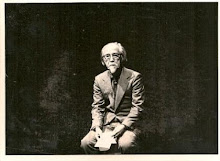
How do you classify a film that is equal parts comedy and tragedy? Can you even call it comedy if you cringe a bit after the laughter dies out? With Sunset Boulevard Billy Wilder utilizes his acerbic wit to knock down the glamour mask of Hollywood and show it as the grotesque and decaying whorehouse that it really is. Of course Wilder knew that by taking on Hollywood he would basically be biting the hand that fed him. A hand that had garnered him several Oscar nominations, a very healthy paycheck, and also the resources to create his brilliant pessimistic work. Yet as caustic as Sunset Boulevard is one can't help notice that the film is not so much an attack on the entertainment industry, but rather it is a dedication to all the shattered dreams that Hollywood has left in its wake.
As broad a topic as Hollywood is Wilder concentrates his story on two people, a once great silent screen actress and a down on his luck screenwriter. These two couldn't be any more different from each other, but they do accurately represent a majority of people in the entertainment industry. You are either trying to get your foot in the door or struggling to not get pushed out.
The silent screen actress, Norma Desmond, is played by Gloria Swanson who in real life had enjoyed success as an actress during the silent era and although she did make the transition into talkies her career never did take off like it had before. Swanson's portrayal of Norma Desmond is a combination of vampire, self-delusional actress, and possessive lover. Desmond lives in a mansion gaudily decorated and surrounded with constant reminders of her days as a star. Norma is careful to always surround herself with people and things that reaffirm her belief that she is still a star. Her self delusion is a means to protect herself from the reality that she is now merely a footnote in Hollywood history.






William Holden, on the other hand, plays Joe Gillis as a man of desperation who exploits Norma from their very first meeting. Gillis is a man that has been chewed up and spit out by the Hollywood machine and sees Norma as a means to get back at least some monetary recoupment for all the indignities he has suffered. Yet his plan to milk Norma for all he could quickly falls to pieces. The longer he stays in her mansion as a pawn in her delusions of stardom the tighter Norma's insanity coils around Gillis till finally there is no escape from the inevitable.
Joe Gillis and Norma Desmond's co-dependent affair as twisted as it was had started out as a mutually agreeable arrangement. Their affair did not grow so much from an emotional need to be together, but rather a more down to earth reason. Joe needed cash and Norma was starved for attention and companionship. Their arrangement could have technically continued for an indefinite amount of time. It is only when Joe starts to spend time with Betty Schaefer, a script reader played by Nancy Olson, that there affair starts to crumble. Joe's feelings for Betty although sincere can never be fully realized because he has entrenched himself so deeply in Norma's reality that Joe has become a male version of Norma. Whereas Norma deludes herself into believing that she is still a star; Joe pretends to stick around Norma for the money but in reality he sees his situation with Norma as an escape.
Like many of Wilder's protagonists Joe Gillis is trapped in his job. His arrangement with Norma maybe yet another trap but at least he can wear the best suits, take a refreshing swim in her pool whenever he wants, and Joe Gillis is basically the center of Norma Desmond's world. He only leaves its comforts after having to admit to Betty and subsequently himself just what type of man he really is. And although Norma shoots Joe due to the threat of her having to face the sad truth of her situation if he left her; Joe goads her to shot him because of his unwillingness to go back to the harsh reality of the world outside of the mansion.


Sunset Boulevard tackles as its subject opportunism and the consequences of trying to have a career in an industry that feeds on desperation. Billy Wilder knew that all success is fleeting, and in a business where you are only as good as your last film anybody who congratulates you on all your success today maybe clutching a knife ready to stab you in the back the next day.




1 comment:
nice movie! so dramatic!
Post a Comment